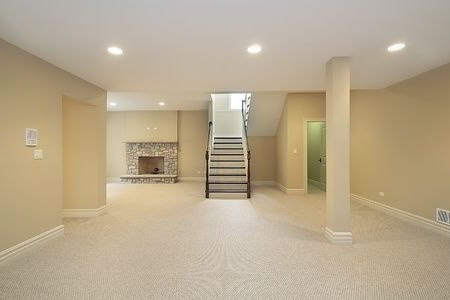Many homeowners dream of having a basement, envisioning it as extra living space, storage, or even a home theater. However, if you’re considering building a house in Florida, the chances are you won’t be digging down for a basement anytime soon. Florida’s unique environment presents significant challenges to traditional basement construction, making them impractical and often impossible. This article will delve into the reasons behind why no basements in Florida are the norm, exploring the state’s geography, climate, and soil conditions that make basements a risky proposition.
From understanding the high water table to the threat of hurricanes and expansive soil, we’ll uncover the factors that contribute to this distinctive feature of Florida’s housing landscape.
Florida’s Geography and Climate
Florida’s location in the southeastern United States places it within a subtropical climate zone characterized by warm temperatures year-round and high humidity. The state is also geographically unique, with a vast coastal plain and numerous freshwater lakes and rivers. This combination of factors creates a challenging environment for basement construction.
The flat terrain prevalent throughout much of Florida means that groundwater levels are often close to the surface. This shallow water table poses a significant risk of flooding and seepage into basements, potentially leading to structural damage and mold growth. Additionally, Florida’s frequent rainfall and proximity to the Atlantic Ocean contribute to high humidity levels, further exacerbating the risk of moisture problems in basements.
High Water Table Challenges
The high water table is perhaps the most significant obstacle to basement construction in Florida. The state’s porous soil allows for easy water infiltration, resulting in groundwater levels that are often just a few feet below the surface. This means that even minor rainfall can cause water to seep into basements, leading to flooding and structural damage.
Furthermore, the high water table makes it difficult to excavate for basements without encountering significant amounts of water. Pumping out this water would be a costly and ongoing process, adding to the overall expense of basement construction. The constant presence of groundwater also increases the risk of soil erosion and instability, further compromising the structural integrity of a basement.
Hurricane and Flooding Risks
Florida is highly susceptible to hurricanes and tropical storms, which can bring torrential rainfall and storm surges that cause widespread flooding. Basements are particularly vulnerable to these events, as they are located below ground level and directly exposed to rising water levels.
During a hurricane or severe storm, floodwaters can quickly inundate basements, causing extensive damage to belongings, structural components, and electrical systems. The risk of flooding also extends beyond hurricanes, as heavy rainfall events can overwhelm drainage systems and lead to localized flooding that can affect basements.
Expansive Soil Conditions
Florida’s soil is often characterized by expansive clay, which has the tendency to expand and contract with changes in moisture content. This means that during periods of heavy rainfall, the clay soil can absorb water and swell, putting pressure on basement walls and foundations. Conversely, during dry periods, the clay soil can shrink, creating gaps and cracks that weaken the structural integrity of a basement.
The constant expansion and contraction of expansive soil can lead to significant damage to basements over time, including cracks in walls, floors, and foundations. This instability makes it challenging to build reliable and durable basements in areas with expansive soil conditions.
Basement Construction Costs and Safety Concerns
Given the numerous challenges posed by Florida’s geography and climate, constructing a basement is a costly and risky endeavor. The need for extensive waterproofing measures, specialized foundation designs, and ongoing maintenance adds significantly to the overall construction expenses.
Furthermore, the potential for structural damage from rising groundwater, hurricanes, and expansive soil creates safety concerns that cannot be ignored. A compromised basement can pose a serious threat to the stability of an entire house, potentially leading to collapse or significant repairs.
Conclusion
While basements are a common feature in many parts of the United States, they are largely absent from Florida’s housing landscape. The state’s unique combination of high water tables, hurricane risks, expansive soil conditions, and challenging climate makes basement construction impractical and often unsafe.
Homeowners in Florida have adapted to these environmental realities by opting for alternative living spaces, such as ground-level additions or elevated homes. Understanding the reasons behind why no basements in Florida is essential for anyone considering building a home in this beautiful but demanding state.



